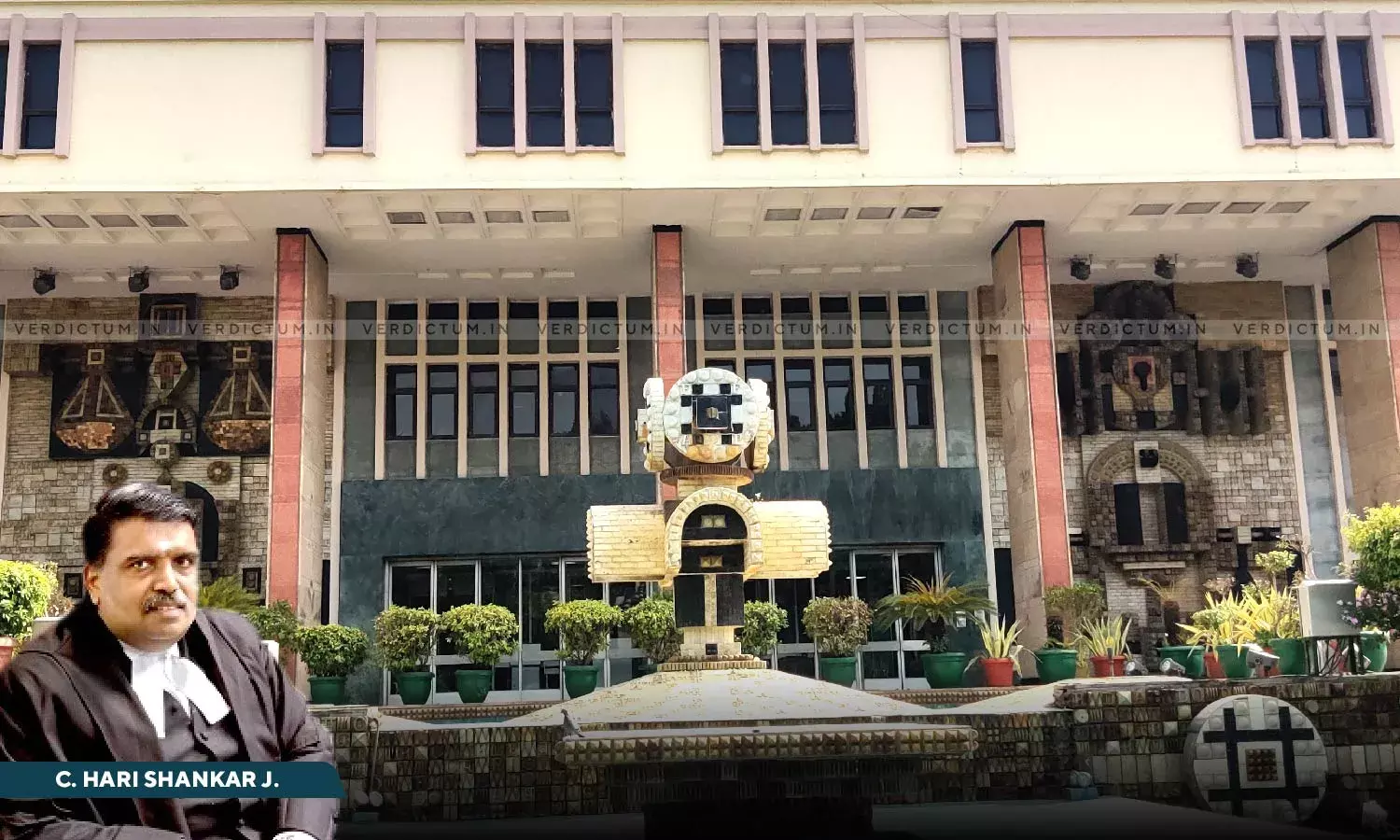Existence Of Ambiguity In Court Order Or Direction Can Be An Absolute Defence To Contempt Action: Delhi HC
The Delhi High Court observed that an ambiguity in the direction, or the order, of which disobedience is alleged is, if found to exist, an absolute defence to a contempt action.
The Single Bench of Justice C. Hari Shankar made this observation while dismissing a contempt petition filed by Canadian company Viterra BV against Sharp Corp Limited regarding the sale of a property in Siraspur, New Delhi.
The Contempt Petition stemmed from Viterra's claim that Sharp Corp deliberately violated a June 3, 2022, court order that restrained the sale or transfer of the property in question. Viterra alleged that Sharp's sale of the property in November 2022 disregarded the injunction.
Sharp countered that the sale was lawful as the property was not mortgaged but subject to a "prior right" of the State Bank of India (SBI). SBI confirmed this, stating that while no mortgage existed, financial dealings with Sharp were involved.
The Petitioner maintained that no valid encumbrances justified the sale, alleging a breach of the court's directive. Sharp, however, argued that the sale was conducted to meet financial obligations, with proceeds used to repay loans, which were substantiated by records.
The Single Judge clarified that not every breach of a court order amounts to contempt, emphasizing that intent is critical. "Sans intent, there can be no contempt. Every disobedience or breach of an order is not contempt unless it reflects disdain or disrespect for the court," the Bench said.
The Court referred to Section 2(b) of the Contempt of Courts Act, 1971, which defines “civil contempt” as “willful disobedience to any judgment, decree, direction, order, writ, or other process of court or willful breach of an undertaking given to a court.” It underscored that the term "willful" signifies a deliberate disregard for court directives, accompanied by an attitude that undermines the judiciary.
The Court highlighted that:
1. Ambiguity in the court order can serve as a defense against allegations of contempt.
2. Parties are often given opportunities to rectify mistakes before contempt actions are pursued.
3. Civil contempt cases have a quasi-criminal nature, necessitating careful judicial scrutiny to avoid over-sensitivity.
The Court found no evidence of deliberate intent by Sharp to violate the injunction. Instead, it noted that the sale of the Siraspur property was undertaken in good faith to meet pre-existing financial commitments to banks. "Ambiguity in the order or its amenability to multiple interpretations is fatal to a plea of contempt," the Court observed.
Given that the sale proceeds were exclusively used to repay loans, with no misappropriation, the Court ruled that no willful disobedience had occurred and dismissed the contempt petition against Sharp Corp.
Cause Title: Vieterra v. Sharp Corp Limited
Appearance:-
Decree Holder: Senior Advocate Darpan Wadhwa, Advocates Raunaq B Mathur, Keshav Somani, Siddharth Sangali, Harshita Agrawal.
Judgment Debtor: Senior Advocate Vikram Nankani with Advocates Arvind Kumar, Heena George, Karan Bharihoke, Sarthak Sachdev.
Click here to read/download the Judgment




